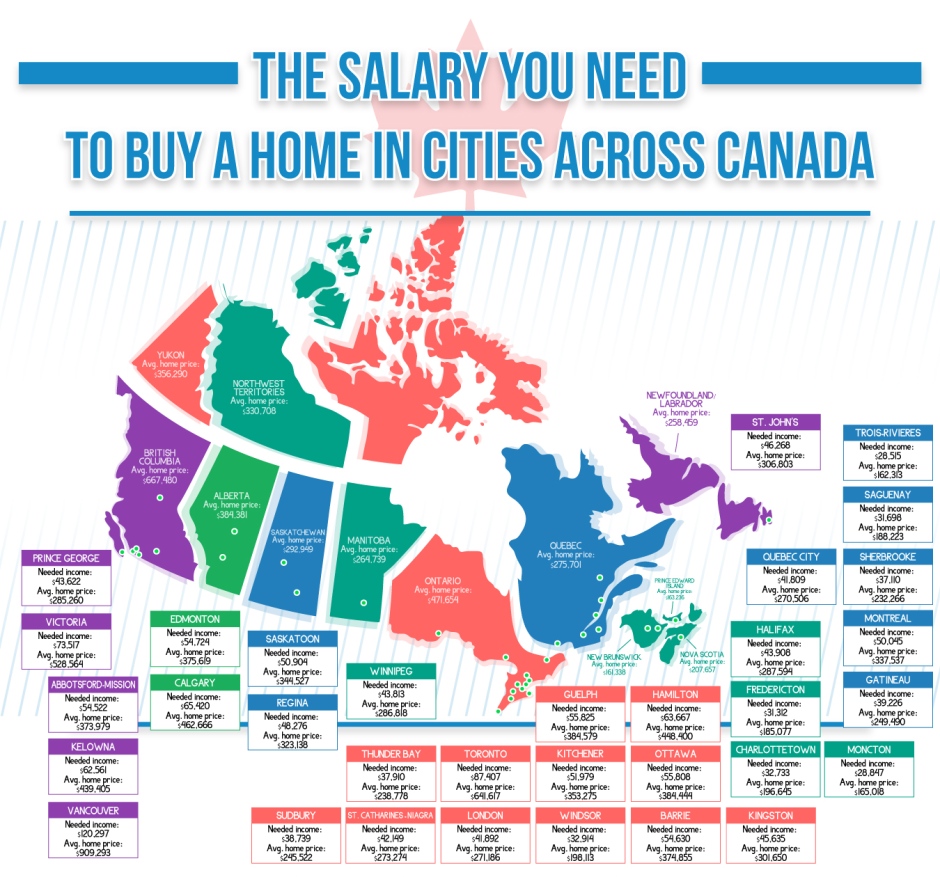Stuck between a rock and your mom’s basement
 Multiple generations living under one roof isn't a new concept, but it is on the rise in North America, especially with millennials. This housing shift comes as a result of many factors, including work challenges and the rising cost of rent in most parts of the country. In fact, millennials are starting their adult lives after the worst financial crisis since the 1930s. This change has been the subject of much speculation and comparison to earlier generations, so personal finance expert Rubina Ahmed-Haq stopped by to help shine some light on why Generation Y is staying put for now.
Multiple generations living under one roof isn't a new concept, but it is on the rise in North America, especially with millennials. This housing shift comes as a result of many factors, including work challenges and the rising cost of rent in most parts of the country. In fact, millennials are starting their adult lives after the worst financial crisis since the 1930s. This change has been the subject of much speculation and comparison to earlier generations, so personal finance expert Rubina Ahmed-Haq stopped by to help shine some light on why Generation Y is staying put for now.
Gen Y – commonly referred to as millennials – are people born approximately between the 1980s and the mid-1990s. Increasingly – and as many have pointed out – this generation hasn't left the nest. In 2016 the national average of adults aged 20-34 living with their parents was 34.7%, with Toronto at the highest rate of 47.4%, and these numbers have been rising steadily since 2001.
Studies indicate this shift is mostly due to economic factors – it turns out there are lot of financial challenges facing Gen Y right now. The cost of living is rising, and many graduates are leaving school with significant debt (the average being close to 30k for university grads). So, naturally, living at home makes that much more sense.
Changes in the workforce
 Precarious work situations are also contributing to millennials being unable to afford to live on their own these days. The recession of 2008, the biggest economic downfall since the Great Depression, left many of this generation to enter a workforce with staggering unemployment rates, markedly low wages, and full-time work increasingly unavailable. As contract, part time or freelance work becomes more and more prevalent, it's more and more difficult for people beginning their careers to secure full time jobs that offer benefits and stability. And as Rubina points out, even if you find a great job that pays you well, but you only have a one year contract, it can be hard to make fiscal choices when you can't see into your future. Broad changes in the workforce such as this might lead to less availability of credit which can put Gen Y in a tough spot when trying to make life altering purchases like a car or home. The reality of today is that a lot of people are not making the wage they thought they would, and many are working longer past retirement – which also means fewer available positions for younger generations to fill.
Precarious work situations are also contributing to millennials being unable to afford to live on their own these days. The recession of 2008, the biggest economic downfall since the Great Depression, left many of this generation to enter a workforce with staggering unemployment rates, markedly low wages, and full-time work increasingly unavailable. As contract, part time or freelance work becomes more and more prevalent, it's more and more difficult for people beginning their careers to secure full time jobs that offer benefits and stability. And as Rubina points out, even if you find a great job that pays you well, but you only have a one year contract, it can be hard to make fiscal choices when you can't see into your future. Broad changes in the workforce such as this might lead to less availability of credit which can put Gen Y in a tough spot when trying to make life altering purchases like a car or home. The reality of today is that a lot of people are not making the wage they thought they would, and many are working longer past retirement – which also means fewer available positions for younger generations to fill.
Changes in the housing market
 No matter where you live in Canada, housing costs have been increasing for the past 10 or 15 years, making it nearly impossible to afford to buy a home on even a full-time salary in many Canadian cities. Given the recent valuation of the dollar, people are able to borrow more and more to buy a home. But during this housing crisis, if you're entering the housing market, you need about $100,000 to $200,000 as the down payment to buy the house. So if you're already paying high amounts of rent it's nearly impossible to save the money for the down payment. Although young people are increasingly open to living at home, many still have a desire to be homeowners someday and are finding that the best way to get there is to live with their parents for a little while.
No matter where you live in Canada, housing costs have been increasing for the past 10 or 15 years, making it nearly impossible to afford to buy a home on even a full-time salary in many Canadian cities. Given the recent valuation of the dollar, people are able to borrow more and more to buy a home. But during this housing crisis, if you're entering the housing market, you need about $100,000 to $200,000 as the down payment to buy the house. So if you're already paying high amounts of rent it's nearly impossible to save the money for the down payment. Although young people are increasingly open to living at home, many still have a desire to be homeowners someday and are finding that the best way to get there is to live with their parents for a little while.
The advantages of staying put
You do save money! It all comes down to the math – when you live with a bigger group of people, the costs are spread out among more people, helping you save more than if you were supporting yourself individually. For many young families, living with parents can bring a lot of stability because there are more adults around to step in and help with childcare if needed.
But let's not forget that the advantages can go both ways. Some seniors are retiring in financially vulnerable situations, so having adult children live with them helps them financially because the costs are shared. Having extra help around the house can also be great for people with developing or worsening mobility issues.
Paying rent to… Mom?
Rubina suggests that if you're making a good salary, it would be nice to contribute to the household financially. Food, utilities and a place to sleep are pricey for everyone, so it may be extra helpful to contribute to the household expenses. Instead, show your parents you care and want to contribute by doing chores, running errands, shoveling the walkway… whatever you can do to help out. You might be their child, but you're no longer a child, so it's advisable to act accordingly to keep reaping the rewards of a (temporarily) rent-free life.
© http://www.cbc.ca/life/thegoods/a-financial-expert-explains-why-millennials-are-leaving-home-later-than-their-parents-1.4563913
